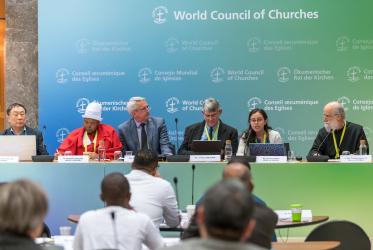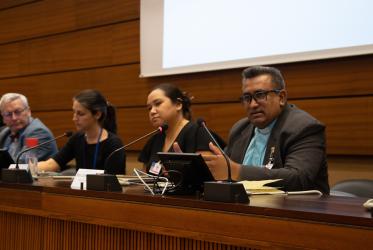La segunda reflexión de la iniciativa, Siete semanas para el Agua 2022, de la Red Ecuménica del Agua del CMI está escrita por Nicole Ashwood (Nicqi). * En la siguiente reflexión, que escribió con motivo del Día Internacional de la Mujer, medita sobre la historia del Éxodo: de cómo se privó a las mujeres de agua y de cómo Moisés se levantó en su defensa y las abasteció, a ellas y a su rebaño, de agua. A continuación, subraya de qué manera los países desarrollados, Suiza incluida, regulan el acceso al agua salubre y cómo esta forma de actuar se repercute, en todo el mundo, en la salud, el bienestar y la dignidad de los pueblos, especialmente de las mujeres.
07 March 2022












